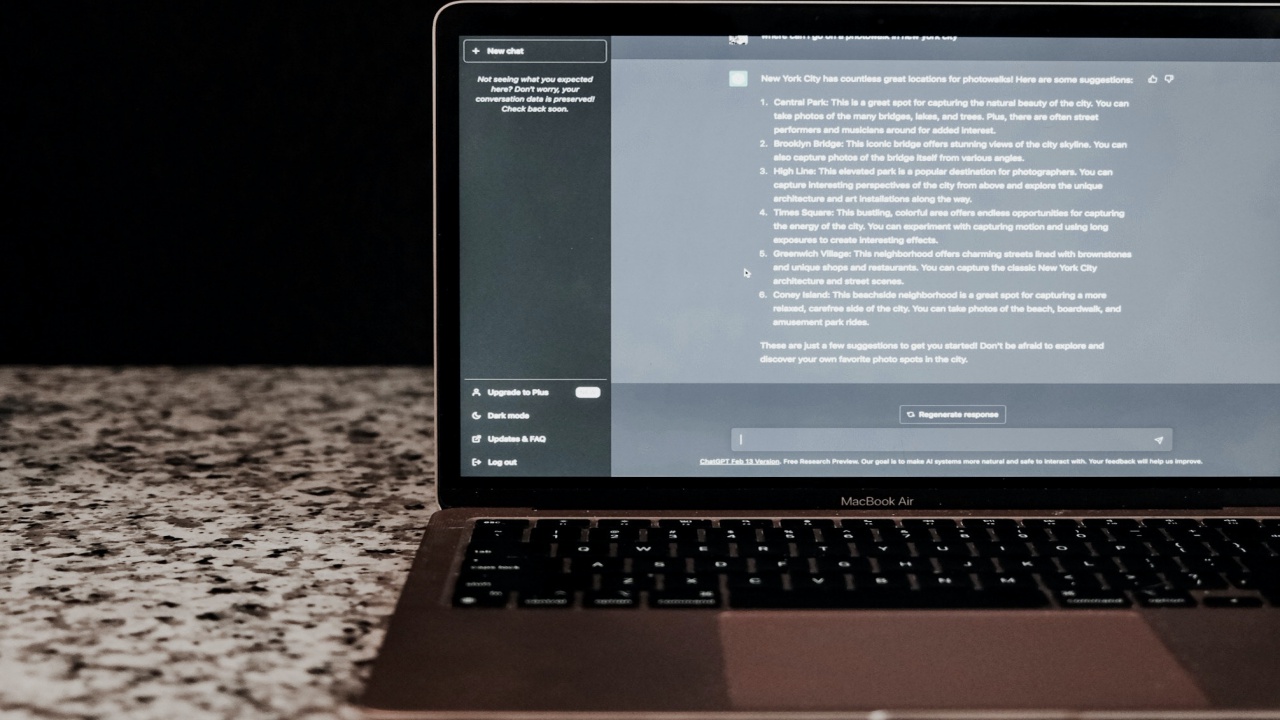The launch of ChatGpt (Generative Pre-trained Transformer) in November 2022 was the turning point around which the enormous opportunities associated with the development of AI have become entwined. Machine learning has become the free zone where geopolitics meets audiovisual, where ethics meets economics and the labour market.
But what specifically is ChatGpt? The software launched by OpenAi (a leading artificial intelligence company), is designed to simulate a conversation using a language that mimics that of human beings, thanks to the operation of GPT-3, a natural language processing (or NLP) model developed by OpenAI itself. In addition to conversations, the programme is able to generate text automatically, using a wide variety of content from articles, books, human conversations and web content, so as to train the machine’s language and make it very similar to that generated by a human user.
For example, you can ask the machine to create a noir story set in early 20th century Berlin and featuring a kindly old lady and an old dog. What will come out in a few seconds will be an original story, written for us, that will take inspiration from everything ChatGpt has been able to generate by taking the material on which it has been ‘trained’ and modifying it through the use of its algorithm.
When ChatGpt was released last year, its success was unbelievable, almost on a par with the presentation of the iPhone in 2007: Microsoft, Google (Alphabet) and Meta immediately committed considerable economic resources to remain competitive in the market. Amazon and Apple have not been outdone, along with China which, not without difficulty, continues to advance on the geopolitical chessboard. An arms race that has also involved the audiovisual sector and has, in part, contributed to the strike of WGA scriptwriters and SAG-AFTRA actors in Hollywood.
But while doubts about its proper use continue to worry some, the constant and incredible technological improvements stabilise the idea that, with proper regulation, the benefits of using AI are extremely vast. In this regard, already in the new version of GPT-6, a new cognitive module dedicated to the logical control of output will be added, creating, in effect, a new interface for using digital.
Rapid development and technological potential applied, in this case, to creative writing found a fitting example in the singular competition that took place as part of the Venice Film Festival’s Giornate degli Autori. During the conference “Intelligenza Artificiale – Opportunità o minaccia?”, organised by WGI (Writers Guild Italia), in real time, a pitch for an audiovisual subject, an Artificial Intelligence system and a real-life screenwriter competed.
There was no real winner, but the meeting showed how, by acquiring the necessary tools and rules to govern ‘machine learning’, it could become an excellent assistant and provide a plus to creative work, without, for that matter, detracting from its originality. Indeed, according to Ocse research, the higher the rate of competence, the greater the positive reception of AI. The most skilled professionals see artificial intelligence as a concrete help in managing their daily work, rather than an enemy ready to replace them.
Specifically, the use of Artificial Intelligence in audiovisuals is not limited to content creation, but ranges organically across the industry: the algorithm, for instance, can predict viewer preferences and suggest changes to improve engagement with the target audience. And again, it can be used to create realistic visual effects of the highest standard, creating thousands of graphics and videos. One thinks of the latest Indiana Jones film, where Harrison Ford looks as youthful as he once was..
It is certain, however, that the use of AI in the audiovisual industry represents a delicate area, which needs to be handled carefully and taking all factors into account. An example of this are the ethical concerns about the use of deepfakes, which could be used to spread disinformation or manipulate public opinion.
And it is here that we move from a purely applicative level to an institutional one. On the need for rules to regulate the use of AI, Undersecretary for Culture Lucia Borgonzoni said that ‘the most urgent issue for the Ministry of Culture concerns the problems raised by the relationship between copyright and generative Artificial Intelligence, which push us towards the preparation of legislation and legal principles aimed at guaranteeing, in a conservative function, the ‘human-centric’ primacy of artistic creativity and respect for copyright’.
In November, exactly one year after the launch of ChatGpt, a conference on Artificial Intelligence will be held by the British government with leaders from the West and like-minded countries. The venue has yet to be determined but it will probably be somewhere between Oxford and Cambridge, two universities crucial to the development of the technology sector. The occasion will undoubtedly be an important moment of confrontation, confirming the centrality and urgency of the topic in all sectors of the contemporary world.
First part here.
Photo Credits: Pexels

